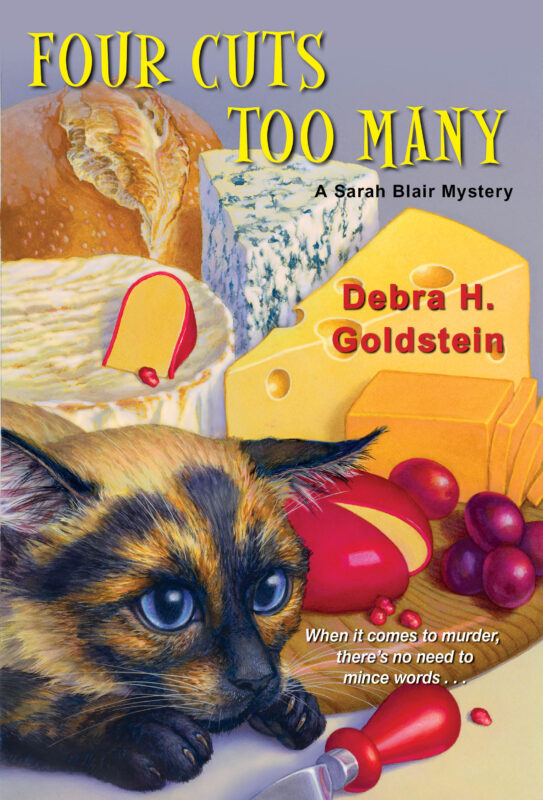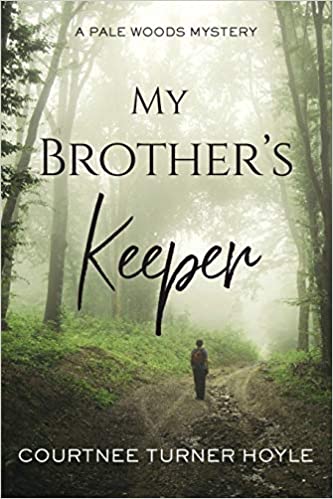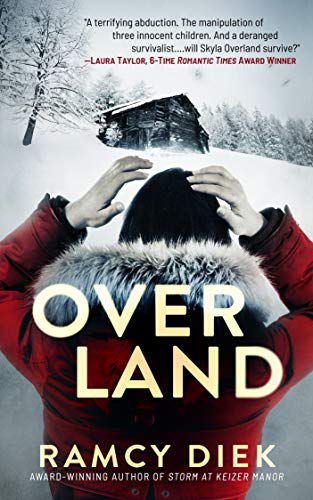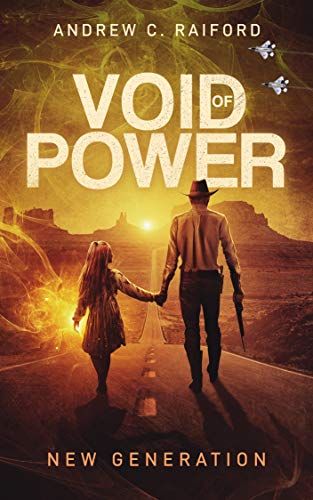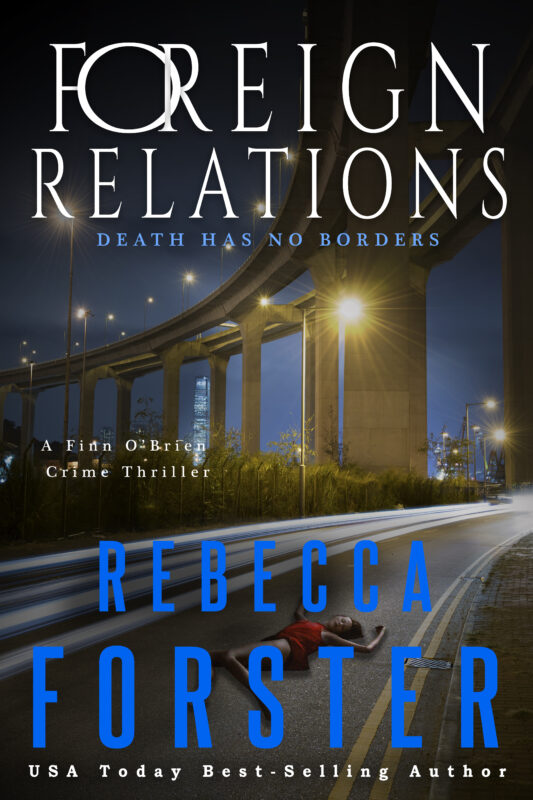Dear Extra Squeeze Team, Writing about Family, Good Idea or Not?
August 31, 2020 by The Extra Squeeze in category The Extra Squeeze by The Extra Squeeze Team, Writing tagged as facts, Family, fiction, writing about family
Dear Extra Squeeze Team, I have a story I want to tell that is loosely based on family and friends. How do I tell my story without hurting anyone?
Robin Blakely
PR/Business Development coach for writers and artists; CEO, Creative Center of America; member, Forbes Coaches Council.
Begin by writing the complete story—beginning to end—the way you truly imagine it. Write with precision honesty without the fear of hurting anyone.
When done writing, evaluate what you have created. It is in the editing stage where you will objectively be able to decide how to share the story publicly without hurting anyone. If the finished story is meant to be fiction, you can go back and make sure physical identifiers that link to nonfiction people (like a skull tattoo on the left arm above a knife scar) are changed to protect the innocent or the not-so-innocent.
If someone has inspired you to recreate their character in a fictional world, rest assured your depiction of their internal thoughts, feelings, and motivations won’t be the tipoff that the character is loosely based on this real person; it will be the physical attributes that you choose.
Most people don’t recognize themselves in someone else’s writing unless they are told the character is modeled after them or the physical facts are eerily the same: age, body build, hair color, scars, name, physical location, profession, relationships with others, or facts from exact encounters are replayed in the work.
If the story you are telling is meant to be nonfiction, you have a different issue. In a biography or a memoir, you need to tell the truth as you know it, but you must also share your truth in a way that can be formally substantiated by the research of others. If you are afraid you might hurt someone by telling the truth in your work and you are naming names across your work, you need to consult an attorney before publication because hurting feelings may result in a lawsuit.

Jenny Jensen
Developmental editor who has worked for twenty plus years with new and established authors of both fiction and non-fiction, traditional and indie.
Cue dramatic music:
Deep Voice Over: The names in this story have been changed to protect the innocent.
That’s a start. Every writer works from what they know — even if they’re writing about elves and spaceships and unicorns. Our own experiences are what we draw on to launch our imagination. And it’s the real-life situations that often give a writer the rich soil for a gripping tale.
Just write the story. When you’ve laid it all out, step away for some distance then read it with fresh eyes to spot what might be so obvious as to be hurtful. If you find the narrative is obvious, even though it is based loosely on family and friends, then consider what the compelling idea is in this tale. What was the single most gripping element that made you want to write about it in the first place? Take that compelling idea and re-write from that prospective.
Or just start with that single compelling idea rather than with the cast of friends and family. Stories have a way of charting their own course and it’s very likely, that with that shift in perspective your story will be unique enough to withstand the scrutiny of sensitive family and friends.

Rebecca Forster
USA Today Bestselling author of 35 books, including the Witness series and the new Finn O’Brien series.
I have used family and friends for inspiration in many of our books. For the most part if I didn’t tell the individual who inspired me, they did not recognize themselves. If I did tell them I was going to do it, most of them were thrilled.
Then there came a time when I happily told my sister I had used our age differences as the foundational inspiration for my story. (she is fourteen years younger than I am and we were born on the same day). She was thrilled–until she read the book. She asked, “Is this really what you think of me?” To be fair she was the bitchy, beautiful sister accused of murder, and I was the smart but downtrodden attorney who saves her.
It had nothing to do with real life other than the span in our ages. Still, when she asked that question, I understood that there was a difference between inspiration and hitting close to home including the perception of hitting close to home.
The answer was, no, the character in no way was my sister. Their physical characteristics were the same, not their character.
What you’re talking about is even more delicate. You are going to be exploring actual things that happened to you and your family. If this is an honest memoir you need to be ready for the fallout. If this is fiction, you’ll need to be very skillful when you write to navigate the hurt feelings—or worse— that might arise. Ask yourself a) is this book is necessary to your well-being and b) if you are strong enough to face any and all consequences that will come with writing it. You are the only one who knows the answers.
H.O. Charles
Cover designer and author of the fantasy series, The Fireblade Array
Ooooh *eyes widen* “awaits gossip*
I think the only way to do that is to write under a pseudonym and don’t tell them about it. People aren’t always as stupid as we hope they are. They’ll figure out it’s them in no time!

Ever wonder what industry professionals think about the issues that can really impact our careers? Each month The Extra Squeeze features a fresh topic related to books and publishing.
Amazon mover and shaker Rebecca Forster and her handpicked team of book professionals offer frank responses from the POV of each of their specialties — Writing, Editing, PR/Biz Development, and Cover Design.
Spirit Trail by Christopher D. Ochs
August 13, 2020 by Bethlehem Writers Group in category From a Cabin in the Woods by Members of Bethlehem Writers Group tagged as Christopher D. Ochs, fiction, Short Stories

August’s from A Cabin in the Woods features a short short by Christopher D. Ochs. Christopher’s foray into writing began with his epic fantasy Pindlebryth of Lenland. Several of his short stories have been published in the Greater Lehigh Valley Writers Group and Bethlehem Writers Group anthologies and websites. His latest work, If I Can’t Sleep, You Can’t Sleep , is a collection of bedtime reading to inflict on naughty children.
His current projects include: a YA urban-fantasy/horror novel My Friend Jackson; a short story in Firebringer Press’ last anthology in their Middle of Eternity series; and the next installment of the Pindlebryth saga.
Christopher says, “The following is semi-autobiographical. I leave it to the reader to determine how much of this tale is true.”
SPIRIT TRAIL
I don’t particularly believe in ghosts, though there have been several curious incidents in this house over my lifetime.
Nothing frightening, mind you, nor anything remotely harmful. If anything, the unseen forces-that-be have been nothing but helpful.
The first instance I clearly recall occurred during my junior-high school years. I was raised the classic latchkey kid. Both parents held down two jobs, so yours truly was responsible for closing up the house before heading to classes.
That spring day, I woke up looking out the open window above my headboard at a sky filled with roiling clouds still deciding whether or not they wanted to rain. By the time I finished dressing for school, Mom and Dad had already slogged off to their crack-of-dawn work shifts.
Dashing out of the house, I was halfway through my shortcut across our neighbor’s corn fields, when I heard the rumble of thunder. On its heels came the realization I couldn’t remember if I had closed my bedroom window.
With a grunt of exasperation, I made a U-turn back for home. Sure enough, my second-floor window was wide open. Ready, willing and able to let the impending squall soak my pillow.
I had sprinted halfway up the stairs when I heard a bang, loud as a gunshot, reverberate from my bedroom. Once I summoned the courage to enter my room, my jaw dropped in bewilderment. The old warped double-hung window–which would normally require my full weight to close–was firmly shut, fierce raindrops pelting its glass panes.
Then there was the time years later, when I returned home long after sunset, tired from work and a laundry list of errands. Both my arms were crammed with fully-loaded grocery bags as I fumbled with the lock and shouldered the door open. I wasn’t two steps into the dark and deserted house when all the kitchen lights snapped on.
With the odd sensation of being watched pressing in on me, I proffered a nervous “Thank you very much?”
The lights flickered in response. I could almost hear the house chuckle.
These humorous but unsettling episodes continued, though with less frequency as the years rolled by. Eventually they stopped entirely–or perhaps, they merely escaped my notice–as responsibilities and drudgeries crowded most everything else out of my life. Adding events like the passing of my parents, the transformation of neighbors’ cornfields to townhouses, and other milestones kept my attention firmly planted in the world of the mundane.
That is, until I discovered an old family heirloom–a county map, penned soon after my ancestors and hundreds of other immigrants had formally established my hometown and surrounding boroughs. The yellowed parchment document, complete with an antiquated county seal, depicted Iroquois trails that were already centuries old by the time the colonial-era deeds had been drafted.
The paths snaked along the ridges of the local offshoots of the Appalachian mountain chain, including a few thoroughfares that wended their way through the new and burgeoning county. The map’s legend declared that the indigenous peoples–the Lenni Lenape, Delaware and other members of the Iroquois nation–had “rights in perpetuity to sole and unhindered access to the mineral fields atop and in vicinity of Jasper Mountain, for the purpose of fashioning arrowheads and other baubles likewise; to deliver said freight without impediment, toll or tax along the footpaths documented herein.”
I was overcome by an unsettling sensation that the house was looking over my shoulder, when I learned the map indicated the footpath connecting Jasper Mountain to the Appalachian Trail formed my estate’s western property line.
Barely a week had passed since finding the map, before I found unmistakable signs my unseen helpers had resumed their work. On the other hand, maybe I was simply paying closer attention.
Like the instance when a limb from the locust tree my father had planted close to the house had fallen. Carpenter ants had eaten away at its core, and the massive limb finally snapped under its own weight, coming to rest harmlessly on open lawn nowhere near the tree’s trunk. By all rights, left to gravity and a windless night, that moss-laden battering ram should have crashed straight through my bedroom ceiling.
The latest instance of helpfulness was thankfully far less life-threatening. It was a windy fall day when my dog bolted out of the house to pester the mailman. I gave chase, still in my bum-around-the-house sweatpants. A stray gust banged the door shut behind me.
My heart leapt into my throat once I realized I had left my keys on the kitchen table, and the door was set to lock behind me. With my recalcitrant puppy in tow, I returned to the house, upset with the predicament I expected to find. I could only shake my head and smile at my invisible helpers, come to my rescue once again.
The deadbolt, which could only have been operated with the key in the lock, had somehow extended itself, preventing the door from closing completely.
I suppose some would attribute these events to poltergeists or other denizens of the afterlife. Other might dismiss them as quaint tall tales. As for myself, I prefer to believe the gentle spirits of Nature, who guided the lives and culture of the countless indigenous peoples before me, still favored this locale.
But how to repay their longstanding kindness?
When I got around to replacing the rotting tree that nearly did me in, I found entangled in its roots a cache of pristine jasper arrowheads. Lost or forgotten by some long-dead traveler, their points were still sharp enough to pierce a deer’s heart. Despite my knowing they would command an impressive sum from any number of collectors, something bid me do otherwise.
Finding a secluded grove overlooking Jasper Mountain’s babbling brook, I reburied my discovery.
Back in my kitchen, I mused over my evening tea. Had I had performed a noble deed, or something unquestionably foolish? With a maudlin sigh, I wondered if I might never again be visited by my unseen helpers.
The lights flickered in response.
Books and Stories by Christopher D. Ochs
One Small Sign
July 30, 2020 by Dianna Sinovic in category Quill and Moss by Dianna Sinovic tagged as Dianna Sinovic, fiction, flash Fiction, short storyOne Small Sign
The house was still—so quiet and somber after Gran’s passing—but Kiri refused to turn on the TV or crank up her earbuds just to fill the silence with trivial sounds. She wanted to catch the memory of Gran’s voice, to hear that mischievous laugh again. Within that nothingness, the faintest of snuffles echoed in the hallway outside Gran’s study, where Kiri was reviewing for a test.
Putting her Econ book face down on the desk, she stepped close to the hall doorway and listened.
There it was again. Snuffle, snort.
Unnerved—she was alone in the house—Kiri poked her head cautiously around the door frame to look down the hall. Empty.
With a small sigh of relief, she walked down the hall and into the dining room to check there. The room was cramped not only with the eight-foot dining table, but also a sideboard, a corner cabinet and a large breakfront. She’d eaten many a meal in this room, with her Gran and, in the years before his death, Gramps presiding. Now both were gone. Despite the bulky furniture, the room felt empty, lifeless.
Scanning the area, Kiri noticed a small figurine on the otherwise cleared table. She picked it up. About six inches long and four inches high: An antelope with its feet tucked neatly beneath it, two short, thin horns, and large deer-like ears. It seemed to gaze at her with dark glistening eyes.
“Where did you come from?” Kiri addressed the object, turning it over.
Oribi, a small African antelope, the label affixed to the bottom said.
Kiri’s gaze wandered to the breakfront. In addition to Gran’s delicate china pieces with their faint blue cloud pattern, the shelves held a few other figurines: an impala and a gazelle, their horns much longer and more curved than the oribi’s.
Gran had a thing for antelopes even though she’d never seen one outside of the Philadelphia Zoo. “To be able to run with that grace and speed,” she told Kiri. “It must be an incredible sight on the savanna.”
Africa had been on Gran’s bucket list, but the Fates had another idea: cancer.
Kiri put the oribi back in its place, with the others, and closed the breakfront section. It had been a month since the memorial service and her parents’ decision that Kiri could live at the house, but how she missed Gran.
As evening came on, she cooked herself dinner, washed up, and went back to studying. Her class final was in two days.
Deep in thought on volume discount pricing theory, she was startled by another noise from the hallway.
Snuffle, snort.
Once again, Kiri followed the noise to the dining room, and there sat the oribi figurine, back on the table.
She picked it up, but this time, she carried it with her to the study. Clearing away a few papers and notebooks, she put the figurine under the desk lamp. How odd. Its head was turned now, instead of looking straight ahead. She ran her fingers along the antelope’s ceramic neck but could feel no place where it could swivel.
Two hours later, Kiri yawned and stretched. She had finished her review. She closed her laptop and textbook, and reached to switch off the lamp. The figurine had vanished from the desktop.
This time, Kiri jumped to her feet. What the—?
In the pool of light from the lamp stood the quavering image of an oribi—at about two feet high, it was the size of a medium dog, but with thin legs, small hooves, and no horns. Ethereal, the doe nuzzled Kiri’s thigh.
Then the realization hit her.
“Gran, is that you?” Kiri knelt and put her hands on either side of the creature’s face. It made no move to pull away, only looked at her with those same dark glistening eyes. Was that a hint of a smile? A moment later, Kiri was once again holding the figurine.
That night, she nestled the ceramic piece next to her pillow and dreamed of running fleet-foot across a sea of grasses under an equatorial sun.
2 0 Read moreBack Seat Drivers by Dianna Sinovic
January 30, 2020 by Dianna Sinovic in category Quill and Moss by Dianna Sinovic tagged as Dianna Sinovic, fiction, getting to the church on time, navigation
“In half a mile, turn right onto Oak Avenue,” GM said.
“No, no,” Tom T. cut in. “That’s incorrect. He’ll want to turn right on Elm.”
“Absolutely not,” GM countered. “Oak Avenue is the fastest way to get to the destination.”
“In one thousand feet, turn right on Elm Avenue,” Tom said.
“Oak.”
“Elm!”
“Never mind.” GM sighed. “The idiot missed the turn anyway. How many times does that make on this trip? Six?”
“I’m not sure he’s even listening,” Tom said. “Let me recalculate the next step.”

“Got it!” GM crowed. “Continue on this road for four miles.”
Tom stayed silent for a few moments. “Five miles, and then merge onto Route 492.”
“That route will put him there three minutes later than mine,” GM said.
“And there’s a gaper delay,” Waze piped up. “It will add thirteen minutes to the total travel time.”
“Know-it-all,” Tom said, then continued with a hint of smugness, “But he complains about you sending him on squirrely routes. Let’s go with GM’s suggestion of four miles.”
“We’re down to three miles,” GM said. “Continue on this road.”
“You already said that,” Tom said. “But I suppose you can’t be too careful. Knowing him, he’ll make the turn too early.”
“Or not at all—again,” GM said. “If he never pays attention, why bother activating all three of us?”
“In a quarter mile, turn left onto Ardor Lane,” Waze said.
“Where the hell did you come up with that?” GM said. “He’s not interested in the scenic route.”
“Ardor Lane,” Tom mused. “Isn’t that where Sabrina lives? We went there often enough.”
“Attention.” GM raised her volume slightly. “In one mile, turn right onto Church Street. The destination will be on your left.”
“Maybe he’s changed his mind,” Waze said. “What time is the wedding?”
“I think it’s twelve-thirty,” Tom said.
“And we’ll get him there with a half hour to spare,” GM said. “Nothing like cutting it close.”
“He’s making a U-turn,” Waze said. “Watch for slow traffic at the next intersection.”
“Don’t turn, don’t turn,” Tom shouted. “You’ll regret it.”
“Done,” Waze said. “Your new destination is Ardor Lane.” There was pride in his voice. “Sabrina, here we come!”
GM sniffed. “And I so wanted to see them throw the rice.”
0 1 Read moreFlight Pattern by Dianna Sinovic
December 30, 2019 by Dianna Sinovic in category Quill and Moss by Dianna Sinovic, Writing tagged as fiction, Flight Pattern
Flight Pattern
Joe cradled the cockatiel in his hands, then extended one of the bird’s wings to trim the flight feathers. His flock of birds now numbered eight, and one pair had three eggs incubating. The birds shrieked and twittered around him as the morning sun though the skylights lit up the aviary.
“Easy there,” he said softly, gently turning the bird and trimming the other wing. The bird’s mate was preening on a nearby branch.
After releasing the cockatiel, he surveyed the aviary. Carey was coming by in twenty minutes, expecting a tour. Would she like it? It was important to him that she understand his passion. These birds were precious to him—they kept him sane. He walked with effort to the doorway and looked back one more time.
He had met Carey a month ago, when she sat next to him at a township meeting. He had come to make a statement about the pending municipal budget. She was there to see her friend’s grandson get a community award. They got to talking and discovered that they had both lost spouses. They both read voraciously, he about the Civil War and she about women’s history. And she loved birds. Joe had vowed to himself that no one would ever replaced Amelia, but he was drawn to Carey’s joie de vivre. She wasn’t pretentious, and she seemed genuinely interested in him.
Joe’s arthritic hip wouldn’t let him go birding with her, but she said she was intrigued by his cockatiels.
But now he was nervous. Twice he checked his reflection in the hall mirror, smoothing his thinning hair. When he saw her drive up, he felt as he had all those years ago, when he and Amelia were on their first date. Could love happen twice in one life?
“Joe, you look pale. Are feeling alright?” Carey wore a peach scoop-necked shirt and tan capris. She looked lovely.
“I’m fine, fine.” He ushered her in the door and accepted her gift of freshly baked bread.
“I thought we might have a slice or two after we look at the birds.” She looked around at the modest living room, and Joe was pleased to see her nod in approval.
The aviary was at the back of the house, in a room that had once been the den. He had built a screened foyer that allowed him to look into the aviary before entering it. Most guests got only that far—a chance to see the birds but not handle them. Joe took Carey into the room itself. When a bird landed on his shoulder, he transferred it to her hand. He pointed out the markings that made cockatiels unique. He told her about building his flock after Amelia’s death. He showed her the nest with the three perfect eggs.
“Would you like one of the hatchlings?”
Carey shook her head. “Thank you, Joe, but I think the baby birds belong here, with your flock.” She seemed to sense his disappointment. “Don’t get me wrong. I appreciate the offer.” Her eyes twinkled. “In fact, I will take one of the hatchlings—as long as it stays in the aviary. That will give me an excuse to come here as often as you’ll have me.”
1 0 Read moreAffiliate Links
A Slice of Orange is an affiliate with some of the booksellers listed on this website, including Barnes & Nobel, Books A Million, iBooks, Kobo, and Smashwords. This means A Slice of Orange may earn a small advertising fee from sales made through the links used on this website. There are reminders of these affiliate links on the pages for individual books.
Search A Slice of Orange
Find a Column
Archives
Featured Books
FOUR CUTS TOO MANY
Sarah Blair gets an education in slicing and dicing when someone in culinary school serves up a main corpse in Wheaton, Alabama . . .
More info →FOREIGN RELATIONS
A foreign woman is dead, two countries want her forgotten. Detective Finn O'Brien wants justice.
More info →Newsletter
Contributing Authors
Search A Slice of Orange
Find a Column
Archives
Authors in the Bookstore
- A. E. Decker
- A. J. Scudiere
- A.J. Sidransky
- A.M. Roark
- Abby Collette
- Alanna Lucus
- Albert Marrin
- Alice Duncan
- Alina K. Field
- Alison Green Myers
- Andi Lawrencovna
- Andrew C Raiford
- Angela Pryce
- Aviva Vaughn
- Barbara Ankrum
- Bethlehem Writers Group, LLC
- Carol L. Wright
- Celeste Barclay
- Christina Alexandra
- Christopher D. Ochs
- Claire Davon
- Claire Naden
- Courtnee Turner Hoyle
- Courtney Annicchiarico
- D. Lieber
- Daniel V. Meier Jr.
- Debra Dixon
- Debra H. Goldstein
- Debra Holland
- Dee Ann Palmer
- Denise M. Colby
- Diane Benefiel
- Diane Sismour
- Dianna Sinovic
- DT Krippene
- E.B. Dawson
- Emilie Dallaire
- Emily Brightwell
- Emily PW Murphy
- Fae Rowen
- Faith L. Justice
- Frances Amati
- Geralyn Corcillo
- Glynnis Campbell
- Greg Jolley
- H. O. Charles
- Jaclyn Roché
- Jacqueline Diamond
- Janet Lynn and Will Zeilinger
- Jaya Mehta
- Jeannine Atkins
- Jeff Baird
- Jenna Barwin
- Jenne Kern
- Jennifer D. Bokal
- Jennifer Lyon
- Jerome W. McFadden
- Jill Piscitello
- Jina Bacarr
- Jo A. Hiestand
- Jodi Bogert
- Jolina Petersheim
- Jonathan Maberry
- Joy Allyson
- Judy Duarte
- Justin Murphy
- Justine Davis
- Kat Martin
- Kidd Wadsworth
- Kitty Bucholtz
- Kristy Tate
- Larry Deibert
- Larry Hamilton
- Laura Drake
- Laurie Stevens
- Leslie Knowles
- Li-Ying Lundquist
- Linda Carroll-Bradd
- Linda Lappin
- Linda McLaughlin
- Linda O. Johnston
- Lisa Preston
- Lolo Paige
- Loran Holt
- Lynette M. Burrows
- Lyssa Kay Adams
- Madeline Ash
- Margarita Engle
- Marguerite Quantaine
- Marianne H. Donley
- Mary Castillo
- Maureen Klovers
- Megan Haskell
- Melanie Waterbury
- Melisa Rivero
- Melissa Chambers
- Melodie Winawer
- Meriam Wilhelm
- Mikel J. Wilson
- Mindy Neff
- Monica McCabe
- Nancy Brashear
- Neetu Malik
- Nikki Prince
- Once Upon Anthologies
- Paula Gail Benson
- Penny Reid
- Peter J Barbour
- Priscilla Oliveras
- R. H. Kohno
- Rachel Hailey
- Ralph Hieb
- Ramcy Diek
- Ransom Stephens
- Rebecca Forster
- Renae Wrich
- Roxy Matthews
- Ryder Hunte Clancy
- Sally Paradysz
- Sheila Colón-Bagley
- Simone de Muñoz
- Sophie Barnes
- Susan Kaye Quinn
- Susan Lynn Meyer
- Susan Squires
- T. D. Fox
- Tara C. Allred
- Tara Lain
- Tari Lynn Jewett
- Terri Osburn
- Tracy Reed
- Vera Jane Cook
- Vicki Crum
- Writing Something Romantic
Affiliate Links
A Slice of Orange is an affiliate with some of the booksellers listed on this website, including Barnes & Nobel, Books A Million, iBooks, Kobo, and Smashwords. This means A Slice of Orange may earn a small advertising fee from sales made through the links used on this website. There are reminders of these affiliate links on the pages for individual books.























